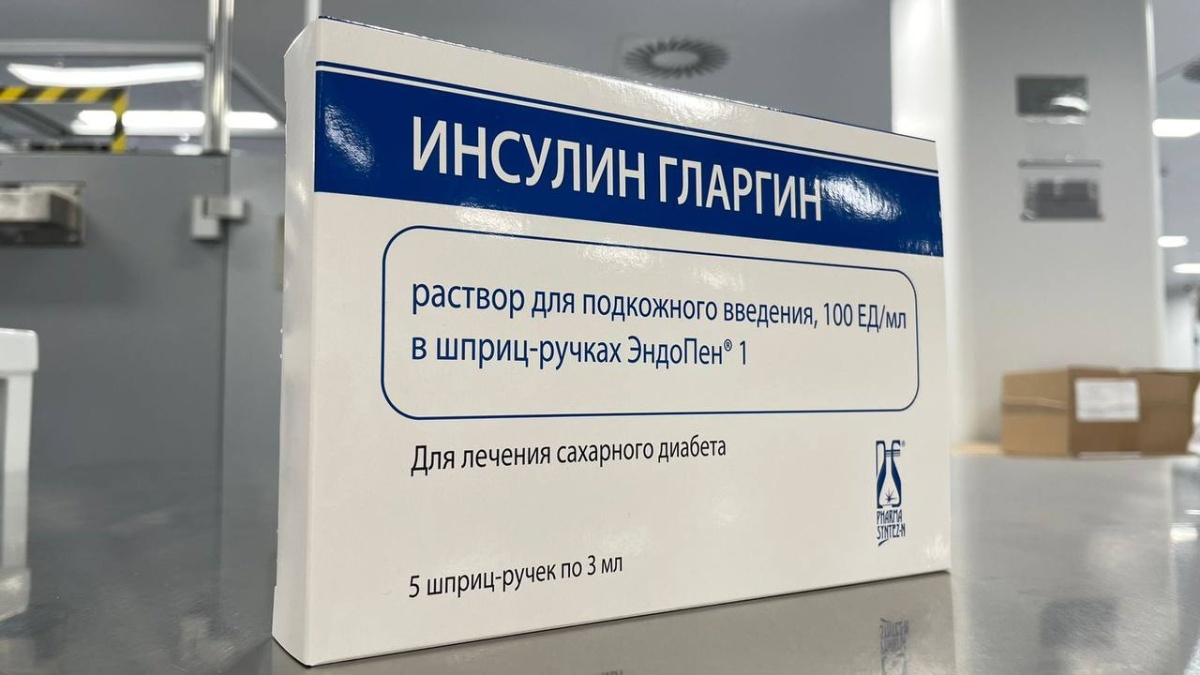
Glargine holds leading positions among insulins both in the world and in Russia (its sales share is 28% by value and 15% by volume of total insulin sales).
According to Alpharm’s the audit, insulin glargine sales in 2022 amounted to 7.8 billion rubles and more than 2 million packs. Sales are growing in both terms. For example, the average annual growth rate over 5 years amounted to +2% by value and +3% by volume.
Insulins manufactured by Pharmasyntez-Nord are full biosimilars of foreign drugs, so they match them in terms of efficacy and safety profiles. For patients, this means that they will receive drugs of high quality at a lower cost, without the risk of vital and essential drugs shortage. The main goal of the Pharmasyntez Group is to ensure Russia's drug sovereignty by providing patients with the most important high-quality drugs.
The insulin production capacity of the plant is more than 5 million units per year. Available presentation forms are vials, disposable injection pens, and cartridges for reusable injection pens.
The company previously announced the launch of three types of recombinant human insulins (Gensulins) - Gensulin M30, Gensulin N, Gensulin R.
“The launch of insulin glargine is the next step in providing patients with modern affordable drugs. The company is also planning to launch insulin lispro, a DNA recombinant analog of human insulin, in the near future," said Mikhail Kvasnikov, Chief Executive Officer of Pharmasyntez-Nord JSC.
Pharmasyntez-Nord JSC (part of the Pharmasyntez Group of Companies) is a modern pharmaceutical research and manufacturing complex specializing in the development and manufacture of modern and effective pharmaceutical products for the treatment of oncological, autoimmune and endocrine system diseases. Pharmasyntez-Nord now manufactures 45 trade names of oncological drugs, 99% of which are included in the List of Vital and Essential Drugs of the Russian Ministry of Health.
Pharmasyntez-Nord JSC operates in accordance with the requirements of Good Manufacturing Practice (GMP) regulations. The quality system functions at all stages of the drug life cycle, from development to marketing, and is based on the principles of continuous improvement and risk-oriented approach.
